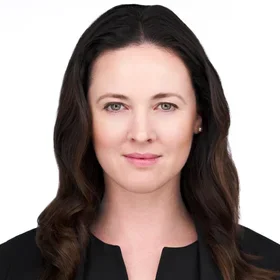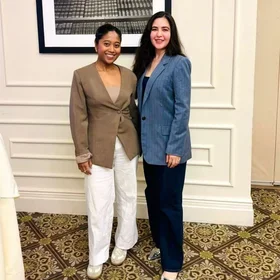Strategic Communication graduate Clement Gibson is an avid storyteller. In addition to narrative writing, he regularly makes short films and other digital stories. But he knew he would need skills in data analytics to meet market demands. Gibson says Columbia’s M.S. in Strategic Communication program helped him to understand data as both a source and method of storytelling. Today, he spends most of his days working with data to provide sound insight to clients. He also credits Columbia SPS’ e-Mentor Program with helping him to expand his network. Clement recently discussed his path to Columbia, what he gained from the experience and advice for current and future students.
What compelled you to sign up for the e-Mentor program? Who was your mentor?
I knew that on top of my education, I wanted to make connections with different people that may be able to help me along the way. My mentor’s name was Kim Loh and she is another Columbia SPS graduate (Negotiation and Conflict Resolution). It wasn't a standard mentor-mentee relationship where Kim would unilaterally tell me what I should do. Instead, we had authentic, casual conversations where Kim offered up new perspectives and holistic life advice which I welcomed.
What was most rewarding about having Kim as an e-Mentor?
While my mentor didn’t share my love of film, marketing, or the NBA, she still gave me sound advice and connected me with people who helped me down the line. One of Kim’s greatest recommendations was suggesting I expand my portfolio. She encouraged me to stay consistent and produce videos and written stories each month to showcase my versatility. Now I have a diverse portfolio full of interesting content told across different types of media. I also do brand marketing consulting in my spare time and my clients are able to see my website highlighting all of this work. I credit my relationship with Kim for providing the structure to be prepared.
What led you to pursue a master’s in strategic communication? Why Columbia?
I felt it would be an honor to have Columbia University on my resume. Columbia’s Strategic Communication curriculum was the right balance of everything – theory and application, traditional and newer communication methods, and the flexibility to pursue topics of interest to me. In addition, I didn't know if I wanted to go to graduate school, but I knew that if I ever received an opportunity for it to be paid for, I would enroll. I was able to get a Twin Cities Hope Scholarship through the UNCF. It wasn’t a full ride, but I was awarded $7,500 each semester for two years.
Now that you’ve graduated, tell us about your current position.
I'm a Display Associate for a digital marketing and media agency called Dentsu. I work a lot with data analytics to track performance across various campaigns we're running. I spend the majority of my day creating and sending reports to clients. I’m often sharing insights on their spending and the audiences they're reaching to ensure everyone's in the loop on the performance data and able to make pertinent decisions.
I pride myself on storytelling and in a way, my job here at Dentsu enables me to do that with data. I think pulling reports and numbers and turning them into a narrative that I present to clients is preparing me for the greater journey of my career.
How is your Columbia education helping you to reach your goals?
I believe I was selected for my current role in large part because of my Columbia degree. I studied journalism and media studies in college, but I wasn't experienced in data. In Columbia’s Strategic Communication M.S. program, I spent much more time with data and analytics and I continue to do so now. My Columbia classmates also helped me to become more adept at learning the numbers and gave me the confidence to apply for a position like this.
Last year, I interned with the Atlanta Hawks’ public relations and communications team in Las Vegas during the summer league. While this opportunity came from a connection through Jackson State University, I believe the hiring managers were impressed that I would travel to Las Vegas during finals week at Columbia. They saw my level of ambition and assertiveness and I am certain this factored into receiving the internship.
How did you pivot from traditional storytelling to data?
Throughout the Strategic Communication program, I learned the importance of data. While it’s great to have impactful and compelling storytelling, it’s just as important to have numbers that back up your statements when you enter boardrooms with decision-makers. The concept was embedded in our classroom conversations and case studies. Professor Ethan Pew, in particular, organized his lessons to illustrate how data can support and even elevate a story. Other standout classes include The Compelling Communicator, all courses with Professor Alex Merceron (she’s the best), The Strategic Storyteller, and Digital Media & Analytics.
Do you have any advice for future and current students?
The program moves quickly so connect with as many people and opportunities as you can. If I didn’t get involved with the e-Mentor Program, for example, I would have never met Kim Loh and I may not have expanded my professional portfolio as I have. So make connections because it's not always what you know, but who you know.


